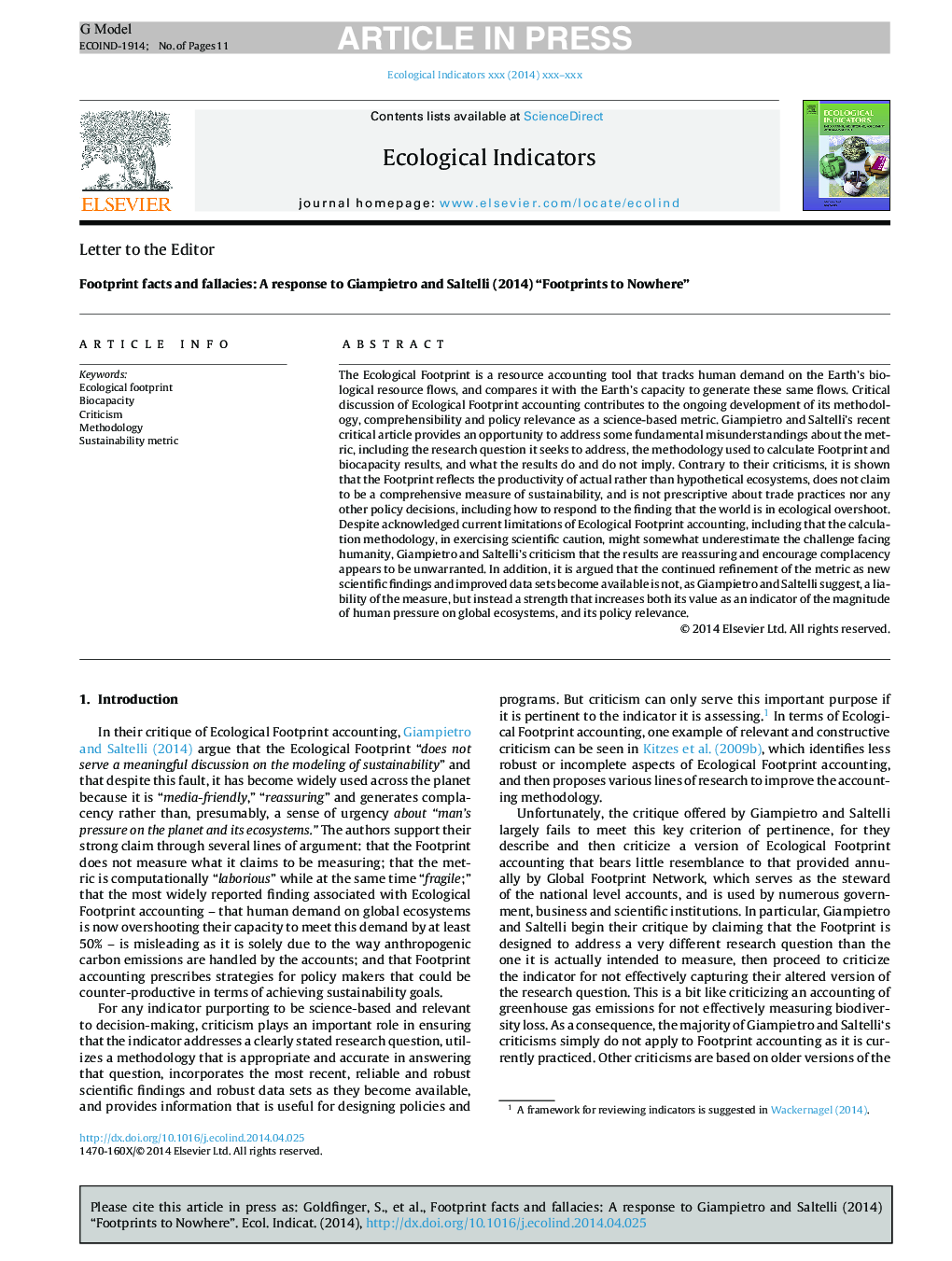| کد مقاله | کد نشریه | سال انتشار | مقاله انگلیسی | نسخه تمام متن |
|---|---|---|---|---|
| 6294962 | 1617155 | 2014 | 11 صفحه PDF | دانلود رایگان |
عنوان انگلیسی مقاله ISI
Footprint facts and fallacies: A response to Giampietro and Saltelli (2014) “Footprints to Nowhere”
دانلود مقاله + سفارش ترجمه
دانلود مقاله ISI انگلیسی
رایگان برای ایرانیان
کلمات کلیدی
موضوعات مرتبط
علوم زیستی و بیوفناوری
علوم کشاورزی و بیولوژیک
بوم شناسی، تکامل، رفتار و سامانه شناسی
پیش نمایش صفحه اول مقاله

چکیده انگلیسی
The Ecological Footprint is a resource accounting tool that tracks human demand on the Earth's biological resource flows, and compares it with the Earth's capacity to generate these same flows. Critical discussion of Ecological Footprint accounting contributes to the ongoing development of its methodology, comprehensibility and policy relevance as a science-based metric. Giampietro and Saltelli's recent critical article provides an opportunity to address some fundamental misunderstandings about the metric, including the research question it seeks to address, the methodology used to calculate Footprint and biocapacity results, and what the results do and do not imply. Contrary to their criticisms, it is shown that the Footprint reflects the productivity of actual rather than hypothetical ecosystems, does not claim to be a comprehensive measure of sustainability, and is not prescriptive about trade practices nor any other policy decisions, including how to respond to the finding that the world is in ecological overshoot. Despite acknowledged current limitations of Ecological Footprint accounting, including that the calculation methodology, in exercising scientific caution, might somewhat underestimate the challenge facing humanity, Giampietro and Saltelli's criticism that the results are reassuring and encourage complacency appears to be unwarranted. In addition, it is argued that the continued refinement of the metric as new scientific findings and improved data sets become available is not, as Giampietro and Saltelli suggest, a liability of the measure, but instead a strength that increases both its value as an indicator of the magnitude of human pressure on global ecosystems, and its policy relevance.
ناشر
Database: Elsevier - ScienceDirect (ساینس دایرکت)
Journal: Ecological Indicators - Volume 46, November 2014, Pages 622-632
Journal: Ecological Indicators - Volume 46, November 2014, Pages 622-632
نویسندگان
Steve Goldfinger, Mathis Wackernagel, Alessandro Galli, Elias Lazarus, David Lin,